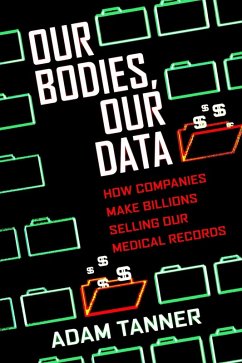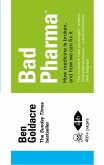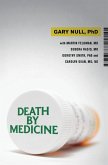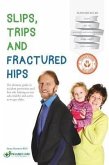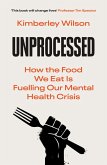How the hidden trade in our sensitive medical information became a multibillion-dollar business, but has done little to improve our health-care outcomes Hidden to consumers, patient medical data has become a multibillion-dollar worldwide trade industry between our health-care providers, drug companies, and a complex web of middlemen. This great medical-data bazaar sells copies of the prescription you recently filled, your hospital records, insurance claims, blood-test results, and more, stripped of your name but possibly with identifiers such as year of birth, gender, and doctor. As computing grows ever more sophisticated, patient dossiers become increasingly vulnerable to reidentification and the possibility of being targeted by identity thieves or hackers. Paradoxically, comprehensive electronic files for patient treatment-the reason medical data exists in the first place-remain an elusive goal. Even today, patients or their doctors rarely have easy access to comprehensive records that could improve care. In the evolution of medical data, the instinct for profit has outstripped patient needs. This book tells the human, behind-the-scenes story of how such a system evolved internationally. It begins with New York advertising man Ludwig Wolfgang Frohlich, who founded IMS Health, the world's dominant health-data miner, in the 1950s. IMS Health now gathers patient medical data from more than 45 billion transactions annually from 780,000 data feeds in more than 100 countries. Our Bodies, Our Data uncovers some of Frohlich's hidden past and follows the story of what happened in the following decades. This is both a story about medicine and medical practice, and about big business and maximizing profits, and the places these meet, places most patients would like to believe are off-limits. Our Bodies, Our Data seeks to spark debate on how we can best balance the promise big data offers to advance medicine and improve lives while preserving the rights and interests of every patient. We, the public, deserve a say in this discussion. After all, it's our data.
Dieser Download kann aus rechtlichen Gründen nur mit Rechnungsadresse in A, B, BG, CY, CZ, D, DK, EW, E, FIN, F, GR, HR, H, IRL, I, LT, L, LR, M, NL, PL, P, R, S, SLO, SK ausgeliefert werden.

